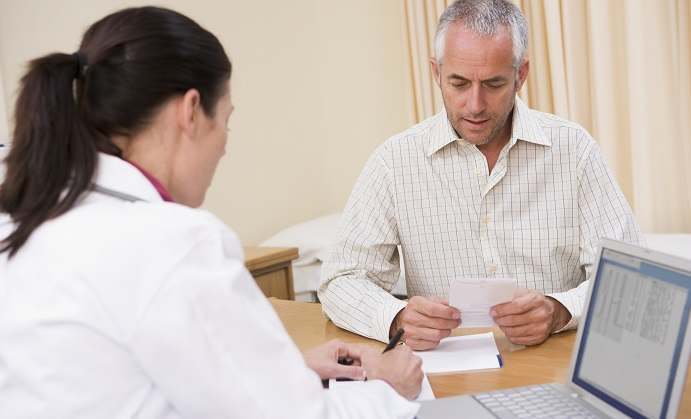Aging is an inevitable part of the human journey. Living with health challenges as you grow old is often a new reality for many people. One of the main health issues that men face is the development of Enlarged Prostate (BPH), otherwise known as benign prostatic hypertrophy. Research shows that age is a contributing factor in BPH, especially in men aged 50 and over. Prostate problems tend to increase with age, but new cases taper off to about 10% in the more advanced years.
The good news is that the symptoms of BPH are usually relatively mild. But alternately, that is also the reason many men remain unaware of their condition until more advanced symptoms present themselves. By this time, the condition may have worsened and may require more extensive treatment.
 A problem that may occur when dealing with prostate cases is that the physical symptoms of prostate cancer, closely resemble those of the less fatal BPH and in some instances it can be difficult to diagnose correctly.
A problem that may occur when dealing with prostate cases is that the physical symptoms of prostate cancer, closely resemble those of the less fatal BPH and in some instances it can be difficult to diagnose correctly.
A prompt trip to the doctor’s office is worthwhile since it will allow the best possible circumstances for understanding and treating the symptoms if the diagnosis is cancer. It permits the physician a wider range of treatment possibilities.
Know The Main Symptoms
There are several indications that a person is suffering from a prostate problem or other health issue. If the symptoms are not persistent, it is likely not a serious prostate problem – it may be due to a urinary tract infection. If, on the other hand, the symptoms persist over time, there is an increased chance that it may be Enlarged Prostate (BPH), or even prostate cancer.
Men should be aware of these symptoms:
- Discomfort during urination
- Diminished control while urinating, in starting and stopping the flow of urine
- Reduced pressure during urination
- Difficulty emptying the bladder of urine
- Frequent urges to urinate even just after urinating
- An urge to urinate that disrupts sleep and causes frequent trips to the toilet
These symptoms already show that something in the prostate is not working well. It could be due to infection or indicate Enlarged Prostate (BPH). They may turn out to be early symptoms of BPH, but on the chance that they could be symptoms of prostate cancer, it is important to consult a doctor as soon as possible.
Don’t rely on mere observation when it comes to your prostate symptoms because they may be confusing. Be ready to describe your symptoms to your doctor, the degree to which they affect your daily activities and when you first noticed them. Informing yourself on the basics of prostate health will be an asset in discussions with your doctor. An annual visit for a full physical exam is critical, especially as we age since early detection is the best strategy for a good outcome, allowing the physician more time and greater options for the effective treatment of BPH and management of symptoms.











